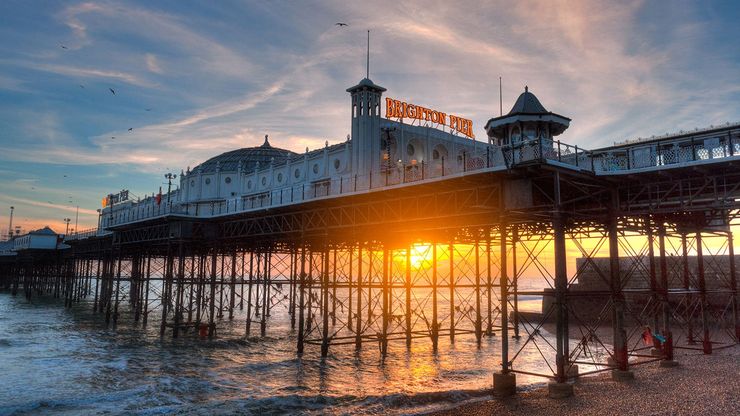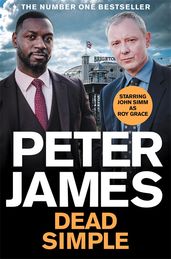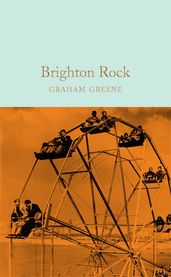Thriller writer Peter James on his home town, Brighton
Haven of day-trippers and magnet for a hedonistic night out, Brighton has a whole other darker side, as thriller writer Peter James reveals.

From teen years in the pier arcade to hanging out with Fatboy Slim, Peter James has a lifelong love for Brighton, and the city’s macabre history has been the perfect inspiration for his life in crime writing. Readers of James’s hugely popular Roy Grace series know that Brighton is a major character in his novels, and the city is centre stage in current ITV adaption Grace. Here James tells us why Brighton’s grip on him is as strong as ever.
‘Hale knew, before he had been in Brighton three hours, that they meant to murder him.’
I owe so much to Graham Greene’s Brighton Rock. Not only did it inspire me to become a writer, it also revealed a whole new side of my hometown that still fascinates and inspires me.
I was born in the city and spent my youth, as many Brighton teenagers do, inside the wooden walls of Brighton Pier’s arcade. My favourite arcade machine was rather macabre – an old automaton of Marie Antoinette on the guillotine that would, on the insertion of a coin, relieve her of her head. It certainly foreshadowed my career as a crime writer.
Brighton is a city much like the sea it borders, an ebbing and flowing place with a constant movement of people in and out, providing an ever-changing array of inspiration for new characters. The modern incomers are mostly affluent young professionals, university students and LGBTQ+ people attracted to Brighton for its beauty, vibrant atmosphere and diverse culture.
However, in the 1930s, it was not a place to escape to but rather a place to escape from, known as ‘The Murder Capital of Europe.’ This unfortunate nickname came about when three dismembered female bodies were discovered in the train station’s left-luggage lockers. To this day, it is the only place in the UK where a serving chief constable has ever been murdered. Henry Solomon met his maker in 1844, bludgeoned to death whilst interviewing a man on suspicion of stealing a roll of carpet. The crime was so shocking to the nation that it caught the attention of Queen Victoria, who donated towards the welfare fund for his widow and nine children.
The more you know about the city’s dark history, the more you can see potential for the sinister in the everyday. The bohemian but claustrophobic Brighton Lanes lend themselves to a chase, the burnt-out skeleton of the West Pier is the perfect melancholy view for a pensive antagonist, and the enduring outlandishness of the Royal Pavilion is the perfect juxtaposition to an illicit deal.
Famous Brighton resident Norman Cook, aka Fatboy Slim, once joked to me that I am leaving bodies all over Brighton. I think he was feeling a little left out, so when I sat down to write my next novel, I made sure to place a corpse at the café he owns in Hove.
Surprisingly, but fortunately for me, Brighton has not been over-written by other authors. Patrick Hamilton’s The West Pier and Graham Greene’s Brighton Rock are the only novels to have delved in any depth into its criminal underbelly. This has left a lot of space for me to develop my own fictional modern underworld.
Brighton itself has played a massive part in shaping not just my characters but my own character. Many people feel constrained by their hometown and want to spread their wings but, to this day, I still feel inspired by Brighton, despite its sometimes grisly past.
Dead Simple
by Peter James
In Dead Simple, Peter James introduces us to Detective Superintendent Roy Grace as he takes on his first major case. It appears that a harmless stag-night prank has gone terribly wrong, with the groom disappeared and his friends dead. With three days to go until the wedding, the bride is understandably distraught. As Grace investigates, he discovers one man who has a lot to gain if the groom would only stay missing . . . This is the first book in Peter James’s bestselling Roy Grace crime fiction series.
Brighton Rock
by Graham Greene
Set among the seaside amusements and dilapidated boarding houses of Brighton’s pre-war underworld, Brighton Rock is both a gritty thriller and a study of a soul in torment. A classic of modern literature, it maps out the strange border between piety and savagery.




